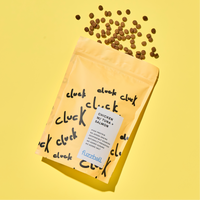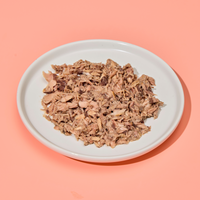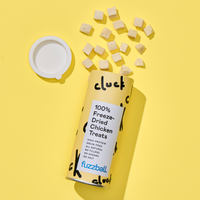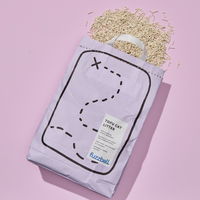How to Prevent Obesity in British Shorthairs
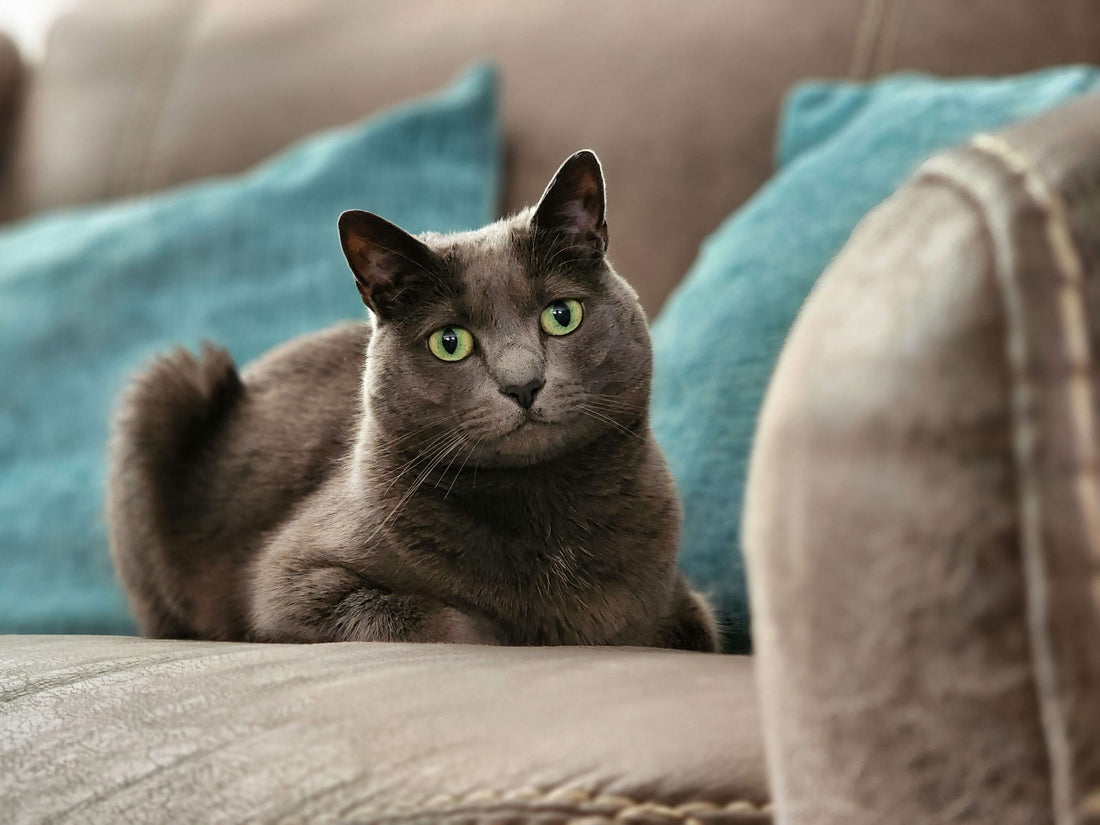
British Shorthairs are one of the UK’s most beloved cat breeds, known for their round faces, calm personalities, and affectionate but independent nature. While they make wonderful companions, their laid-back lifestyle and stocky build mean they’re more prone to piling on the pounds than some other cats.
The good news is that with the right diet, measured portions and a bit of daily enrichment, you can easily keep your British Shorthair at a healthy weight. This guide will walk you through everything you need to know about preventing obesity in the breed, from nutrition and portion sizes to playtime and stress management.
Understanding British Shorthair Diet and Nutrition
Like all cats, British Shorthairs are obligate carnivores, this means that they require a high-protein, meat based diet as their primary source of energy. Their stocky build and laid back lifestyle means that they can be prone to unnecessary weight gain and obesity. Understanding the calorific requirements of your fuzzy friend is extremely important as it means you are able to provide them with a diet that supports a healthy weight and of course gives them all the nutrients they need to maintain their all important furry coats and chubby cheeks.
When choosing food for your British Shorthair, go for options rich in protein sources like chicken, fish or beef which help build and maintain muscle, along with essential nutrients such as taurine that support overall health, avoid foods that are low in protein, are made from animal derivatives and contain carbohydrates or grains that offer little nutritional value to your cat.
How Much Should a British Shorthair Eat?
The amount your British Shorthair eats depends on a number of factors including, age, weight and lifestyle. The table below is a rough guide for healthy cats. Indoor/less active cats should lean towards the lower end, outdoor/more active cats towards the higher end.
|
Life Stage |
Weight |
Calories/day |
Food Type |
|
Kittens - Less than 12 months |
Growing |
60 - 80 Calories per kg per day. |
High-protein. |
|
Male Adults - 1 - 7 yrs |
5-7kg |
220 - 320 kcal/day |
Grain-free, High-Protein |
|
Female Adults 1 - 7yrs |
4-6kg |
180 - 260 kcal/day |
Grain-free, High-Protein |
|
Seniors Males - 7y+ |
5-7kg |
175-315 kcal/day |
Moisture-rich, High-protein wet food |
|
Senior Females 7y + |
4-6kg |
140-270 kcal/day |
Moisture-rich, High protein wet food. |
Are British Shorthairs Prone to Obesity?
A cat is considered to be obese if it is 10-19% heavier than their ideal weight. Obesity can be an issue with British Shorthairs as many of them are indoor cats, they typically burn less calories via exercise than an outdoor cat might. That and their tendency to enjoy lazing around means that they can be more prone to obesity than other cats. Excess weight can impact their health in many ways from joint problems to other more serious conditions such as Feline Hypertrophic Cardiomyopathy. It is therefore extremely important to make sure that you manage their calorific intake, portion size and ensure they are getting up and moving about.

How to Help British Shorthairs Lose Weight?
If your cat is overweight it is extremely important to bring their weight down* to a healthy level to stop them developing weight-related issues and illnesses. There are a number of things that you can do to help your British Shorthair lose some weight from ensuring they are eating a high-protein, high quality diet to exercise and using a puzzle-feeder at meal times. It is also important to know how many calories you should be giving at each meal to make sure you are not overfeeding. It can be difficult to spot early weight gain and weight loss in a cat so be sure to have regular weight checks so you can keep on top of this.
*It is dangerous for cats to lose weight too quickly, so if you think your cat is obese contact your veterinary team who will be able to develop a weight loss program that is suitable for your cat.
Tips to Maintain a Healthy Weight for Your British Shorthair
|
Tip |
Benefit for Healthy Weight |
|
Measure Portions Accurately |
Review labels for accurate food portions to help your fuzzball maintain a healthy weight. |
|
Limit Treats |
When treating your cat be sure to choose freeze-dried treats and limit it to no more than around 10% of their daily intake. |
|
Monitor Your Cat’s Weight Regularly |
Helps detect small weight changes early so you can adjust diet or activity before obesity develops. |
|
Choose High-Protein, Moderate-Fat Diets |
Choosing Fuzzball's high-quality cat food supports lean muscle mass while controlling calorie density; protein keeps cats fuller for longer. |
|
Avoid Filler Ingredients (corn, wheat, soy) |
Cat food that is grain-free prevents “empty” calories and promotes better digestion and nutrient absorption. |
|
Manage Stress and Boredom |
Keeping your kitty entertained, physically and mentally, minimises stress-related overeating. |
|
Encourage Regular Exercise |
With regular play-times, your fuzzball will be burning those calories and maintain their healthy weight. |
|
Provide Environmental Enrichment |
Toys, scratching posts and climbing trees keep your cat moving and engaged, reducing sedentary behaviour. |
Why Tailored Nutrition Matters
Not all cats are the same, and their diets shouldn’t be either. Different breeds, ages, and activity levels mean that cats need food that’s designed to match their specific requirements. Tailored nutrition helps ensure your cat gets the right balance of protein, fats, vitamins, and minerals without any unnecessary fillers or unusable calories.
For British Shorthairs, this is even more important. Their naturally stocky build, calm temperament and sometimes lazy lifestyle mean they are prone to gaining weight if their food is too calorie-dense or carbohydrate-heavy. A diet focused on high-quality protein and the right portion sizes helps them maintain lean muscle and avoid unhealthy weight gain.
Choosing nutrition that’s matched to your cat’s specific needs can help to prevent obesity as well as support your cat's long term health needs, from heart and kidney function to coat condition and energy levels.
Why Does Stress and Boredom Management Matter?
Managing your British Shorthair’s stress and boredom levels can be crucial to prevent them from overeating. Cats, like humans, can use overeating as a coping method for boredom and depending on your cats personality chronic stress can also lead to overeating. One of the best ways to reduce stress in your cat is to be consistent and create predictable routines. Cats are naturally alert to threats in their environment, so when their day feels stable and familiar, they’re more likely to feel safe and relaxed.Similarly, increasing your cat’s physical activity and giving them mental stimulation through interactive play such as feather wands, balls, laser pointers or puzzle feeders helps mimic their natural hunting behaviours and prevents boredom-related overeating.
Choose High-Quality, Grain-Free Cat Food
The quality of your cat’s food obviously plays a huge role in maintaining a healthy weight. Many of the commonly available cat foods contain very little protein and are full of carbohydrates, grains or other fillers that offer little in the way of nutritional value for your cat. These fillers can leave cats feeling less satisfied which in turn leads to overeating.
British Shorthairs do best on a diet that’s rich in animal protein and free from unnecessary carbohydrates. High-protein, grain-free food supports lean muscle, keeps them feeling fuller for longer and helps prevent the gradual weight gain that can lead to obesity. Choosing a food made from real meat and free from fillers not only keeps their weight in check but also improves digestion, coat quality and overall energy levels.
What Are the Nutritional Need For British Shorthairs?
Because they are obligate carnivores, British Shorthairs require a high-protein, meat based diet. As they are prone to suffer from obesity, their food should be low in carbohydrates and fillers. It is important to ensure you are feeding a complete food that uses a high-quality and named protein source. Prioritising wet food over dry also ensures that your cat is getting sufficient moisture within their diet.
British Shorthairs may be more prone to weight gain than some other breeds, but with the right care it’s easy to keep them healthy and happy. By focusing on a high-protein, grain-free diet, controlling portions, and encouraging daily play and enrichment, you’ll help your cat stay lean and full of energy. A little attention to their nutrition and lifestyle goes a long way towards giving your British Shorthair a long, healthy life.

